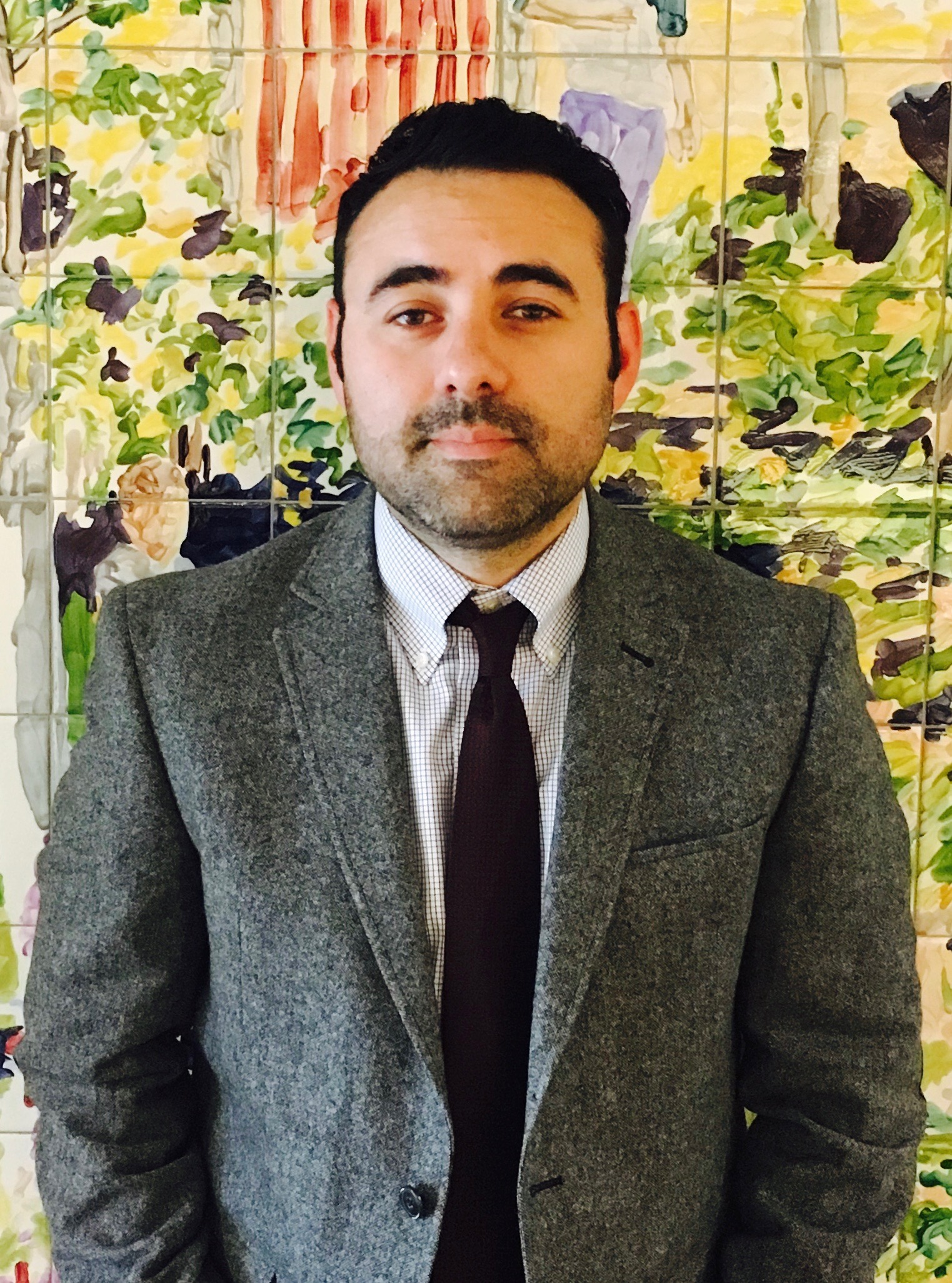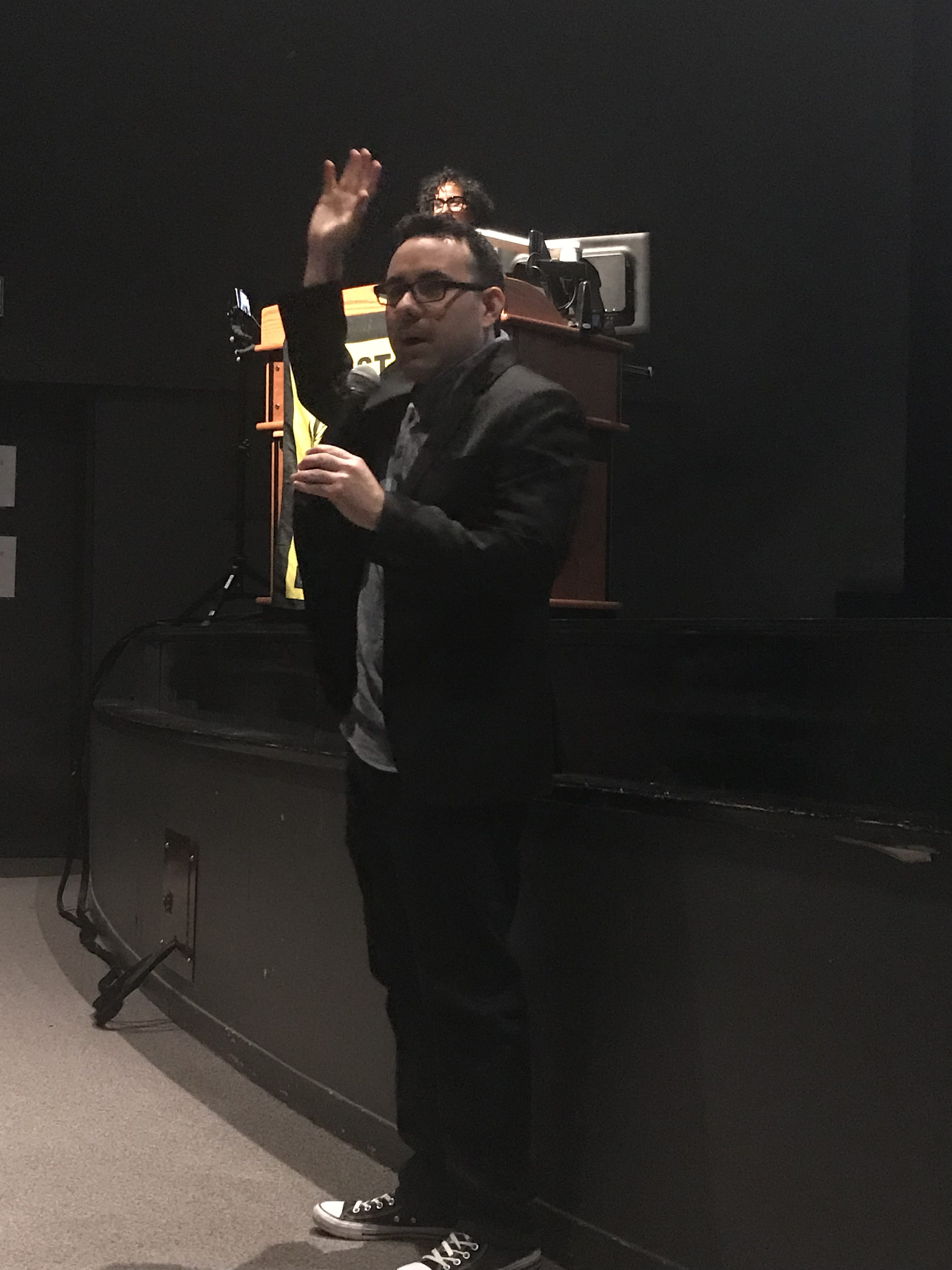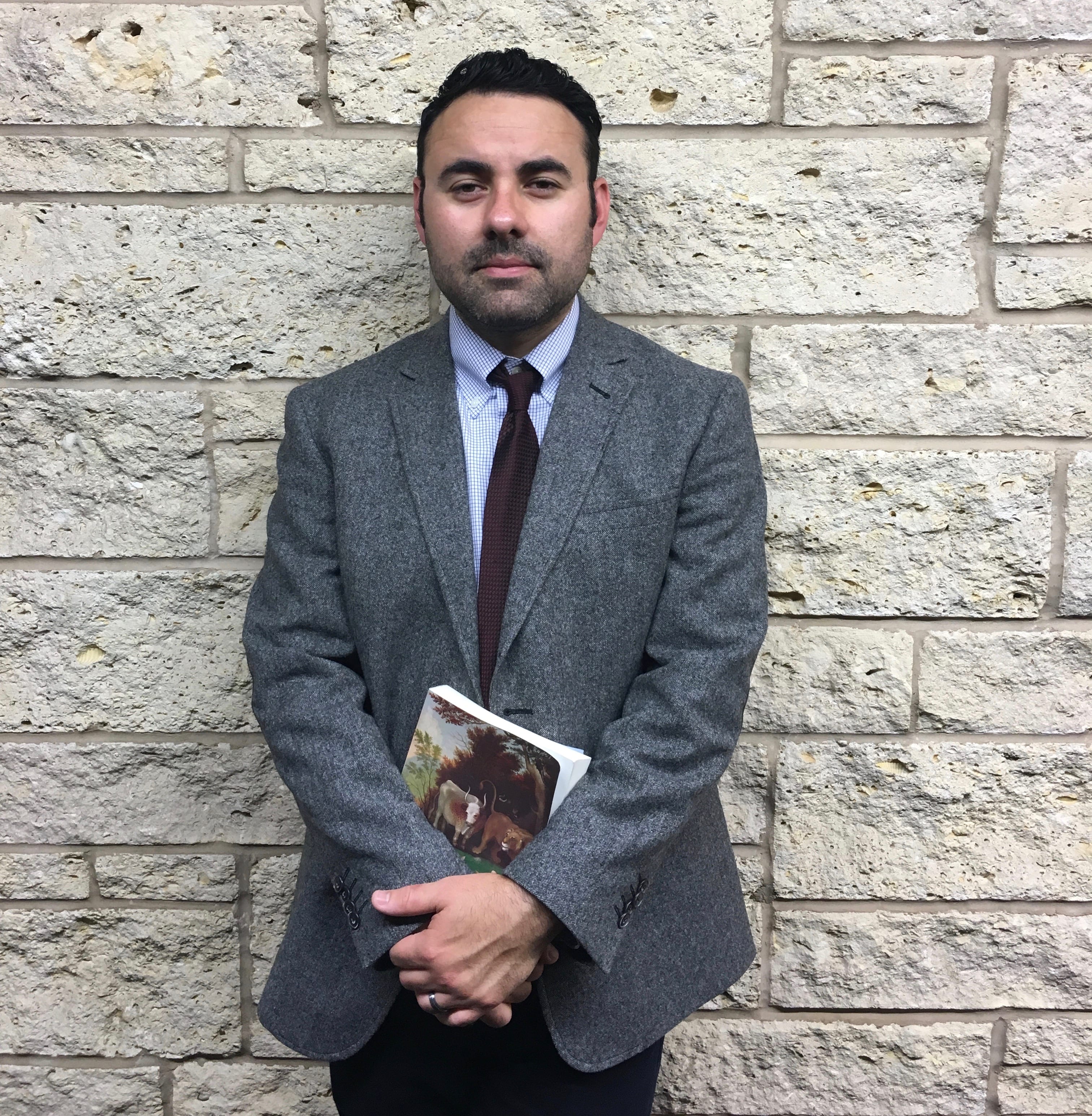From the U of A – to Texas A&M – to California State University, Long Beach: An Interview with Alum (M.A. ’11) Dr. Rene H. Treviño

For many, an English M.A. serves well as a terminal degree. For others, like Dr. Rene H. Treviño (M.A. ’11), an M.A. is a stepping stone to a doctoral program and a tenure-track position. After graduating from the U of A, Rene completed his Ph.D. in English at Texas A&M and then was hired as an Assistant Professor with the Department of English at California State University, Long Beach. In his blog profile, he discusses completing the M.A. thesis option, transitioning to another institution for his doctoral studies, choosing his dissertation topic, going on the tenure-track job market, and “let[ting] go of perfectionism” to stay productive and happy in his academic career.
I’d like to start off, if I may, by stepping back to your time as an M.A. student at the University of Arkansas. First, I love the title of your M.A. thesis (directed by Dr. Susan Marren), “Épater la Bourgeoisie: A Parallel Interpretation of The Turn of the Screw and Heart of Darkness.” The initial phrase, meaning to shock the bourgeoisie, goes well with your offering (according to your first chapter) an unconventional reading of how these two canonical novellas are actually comparable in their use of similar literary techniques to attack Britain’s late-Victorian-era society—specifically, its “bourgeois labor-structure” and tradition of imperialism. First, could you speak to how easy (or difficult) it was for you to bring a “new” reading to two texts that have already had so much written about them by scholars? Second, because our M.A. program has (since you were in the program) replaced its comprehensive exam option with a portfolio option, would you choose the thesis option again if you had it to do over? If so, what are the unique benefits you feel the thesis option still offers our M.A. students who choose that as their final project?
In looking back at my answers once drafted, I confirmed my own suspicion that I have begun building my academic career through practicality. I have focused on doing a “pretty good” job on each task in front of me—over, and over, and over again. This approach was undoubtedly born out of necessity, out of having to produce an M.A. thesis. With as much thought as time would allow, and with the understanding that maintaining momentum would be key throughout the taxing thesis process, I chose to undertake a comparative project on two texts I found compelling at the time: Henry James’s “The Turn of the Screw” and Joseph Conrad’s “Heart of Darkness.” Critics have written about both short stories extensively, but I minimized the pressure to say something new about them by reminding myself that, even though a paradigm shift was out of the question, a modest advancement of the critical conversation was in reach. Strangely, the near impossibility of expertise—given the time constraints, my level of research skill and experience at the time, etc.—was a comfort and not a psychological burden. This mindset helped me immensely on my way to a finished thesis and to timely graduation.
Given the choice to either do it all over again or to complete a portfolio in its place, I would still opt for writing a thesis. Doing so taught me to maintain a disciplined writing schedule, to sustain an argument throughout a lengthy project, and to conduct advanced academic research. Overall, writing a thesis provided me with a level of familiarity with extended research projects that at least partially prepared me for the dissertation experience.
You are the first alum I’ve interviewed who completed the English M.A. program here and then completed a doctoral program at a different institution. Could you talk a bit about your process of transitioning, as a graduate student, from one institution to the next? In particular, since I believe you went directly from Arkansas to Texas (not taking a year off between graduate programs), could you discuss how you paced the second year of your M.A. program so that you were able to submit your doctoral application and defend a thesis within months of each other? Second, would you describe your move from the U of A to Texas A&M a smooth shift in your academic career, or did you, to some degree, have to repeat steps (e.g., being re-trained as a graduate teaching assistant, being required to take an introductory graduate studies course, etc.)? Is there any advice you can give to our current M.A. students who are considering applying to Ph.D. programs at other institutions? For what all should they be prepared if and when they take that step?
The circumstances of my second year in the M.A. program were conducive to submitting my doctoral applications and defending my thesis at the same time. I didn’t teach my first year at U of A, so I was able to devote time then to devising a topic and to developing a research and writing plan. Moreover, I only applied to three doctoral programs, which made the related workload manageable. Once accepted to Texas A&M University, the transition was a smooth one. I was familiar with the state, having been born and raised there, and the student demographics were similar to those of U of A, which made the teaching transition relatively easy. For those who find themselves in an unfamiliar state, I would recommend that they build a network of mentors and peers that can help them navigate the personal and professional challenges of a Ph.D. program.

Rene Moderating a Public Lecture Given by Award-Winning Poet Aracelis Girmay
on the CSULB Campus Last April (https://www.viramonteslecture.com/)
As with the title of your M.A. thesis, I’m intrigued by the title of your dissertation, “Panther Nation: Big Cats and Biopolitics in Nineteenth-Century America.” In the abstract, you write that your project “reveals that women and ethnic minorities in nineteenth-century America used their own big cat literature and oral traditions to construct arguments in favor of their full and equal inclusion in the American social order.” What drew you to this topic and led you to focus upon it in your dissertation? Had you studied this in a previous course, or did you discover this during candidacy preparation or after candidacy? I notice that you published in the journal J19, last fall, “Big Cats and the Femme Fatale in Yda H. Addis’s ‘A Human Tigress,’” an article based upon a sub-chapter from your dissertation. We are advising our current doctoral students to consider doing the same to begin publishing their own work. Can you give them any advice on how best to select and adapt a dissertation chapter for this purpose?
I came upon my dissertation topic during candidacy when working on my dissertation proposal. Influenced by my reading of animal folklore, I became interested in the role of the panther in American frontier literature. It turned out that a recognizable tradition of “panther literature” by (mostly male) Anglo America writers already existed, so I asked myself if this type of writing extended to writings by women and ethnic minorities. This led me to further analyze the frontier panther, to examine representations of the jaguar in the American borderlands, and to determine the symbolic value of the African lion in American abolitionist discourse. I based this work, in part, on the hunch that variety in region, historical context, and authors’ positions within society would produce a wide range of American “big cat texts.” This proved true, and while the broad scope of these texts posed a challenge when trying to find a through line between them, it also provided opportunities to produce stand-alone pieces if need be. I created one such piece from a subsection of one chapter that, with the help of mentors, I decided had the most potential. I viewed submitting the subsection for publication as a win-win scenario: either it would be published or reader reports would help me to improve the dissertation chapter.
On the faculty page for the M.A. in English program at CSULB, your broad areas of specialization are described as “pre-1900 American Literature” and “U.S. Ethnic Literatures,” and your more specific areas of research are listed as “the Female Gothic, literary animal representations of the long 19th century, and the African-American slave narrative tradition.” As I’m sure you know, the job market for English Ph.D. graduates—particularly those specializing in historical eras of literary scholarship—is quite tough right now. If you could, please share with our current doctoral students any strategies you used when applying for positions to set yourself apart as an innovative teacher/researcher working within a traditional area of literary study. By the way, I notice that while you were at Texas A&M, you completed a Graduate Certificate in Africana Studies in addition to your Ph.D. program in English. Why did you choose this additional certification, and how many extra hours did it take you to finish it? To what extent, if any, did it benefit you when you went on the job market?
I would advise doctoral students to do all they can to build a record that resembles that of junior faculty on the tenure track. Doing so can go a long way in helping to convince hiring committees that a candidate is ready to make the transition from student to faculty. Committees often receive an overwhelming number of applications and thus find themselves under pressure to make their decisions on each quickly, especially in the early rounds of evaluation. Fortunately, lines on a candidate’s cv can act as shorthand for their accomplishments: a dissertation fellowship or a research award validates the research agenda, a teaching award, or instructionally-related professional development, shows a commitment to quality teaching, and service to one’s department demonstrates a willingness and ability to go beyond the minimum requirements of the program. Finding a balance between teaching, research, and service—the three areas of tenure evaluation—will ultimately position an applicant as a well-rounded candidate and a “safe” hire.
All graduate students work hard at this, but I would like to stress the importance of formalizing one’s record of experience. For example, my interest in African American literature prompted me to pursue a graduate certificate in Africana Studies while at A&M. This entailed taking three classes above the program’s standard coursework, but it was worth it. A competing applicant could have taken the same number of classes in this area as I had, but I could list the graduate certificate front and center in my application, instead of hoping the committee would look closely at my transcript. Given the nature of the hiring process, strategically positioning cv items can make a substantial difference.
So, I’m getting the impression, Rene—correct me if I’m wrong—that you are a pretty organized person. You are currently balancing your position as Assistant Professor (teaching classes, serving on committees, working up the tenure-track ladder, etc.) with your status as active researcher/scholar. In addition, you are the webmaster for the American Literature Association! How are you doing it all—developing your professional career along with fitting in time to relax with family/friends, keep healthy, take advantage of living in Southern California (please tell me you go to the beach every other weekend), and, if possible, read for fun? It’s easy, I think, to assume that getting the job is the big hurdle, when the stress of having the job can be just as intense. What time management tips can you offer our graduate students for how to stay organized (and happy) after getting hired?
A satisfying work-life balance has been hard to achieve at times, so I have tried developing a work philosophy and the organization skills to ease the stress of the tenure track. With respect to the latter, I use the Pomodoro Technique (alternating periods of rest and distraction-free work) to pace my labor. Each morning I look at my ongoing to-do list, where I file short- and long-term projects by priority, and I decide how much time to devote to each task. Things won’t always go according to plan, but they never will if I you don’t have a plan in place. Also, as mentioned earlier, I have learned to let go of perfectionism. The “pretty good” approach has served me well so far, allowing me to make contributions to the teaching, service, and research at a somewhat even rate. I will say, though, that publications require more attention to detail since they represent a more permanent record of your contributions to your field. Still, as I tell my students: “If you’re waiting to publish until your essay is perfect, you’ll never publish.” This attitude applies to one’s overall career as well: don’t let the pressure of a perfect record keep you from building a strong, lasting one.

Rene on the CSULB Campus
